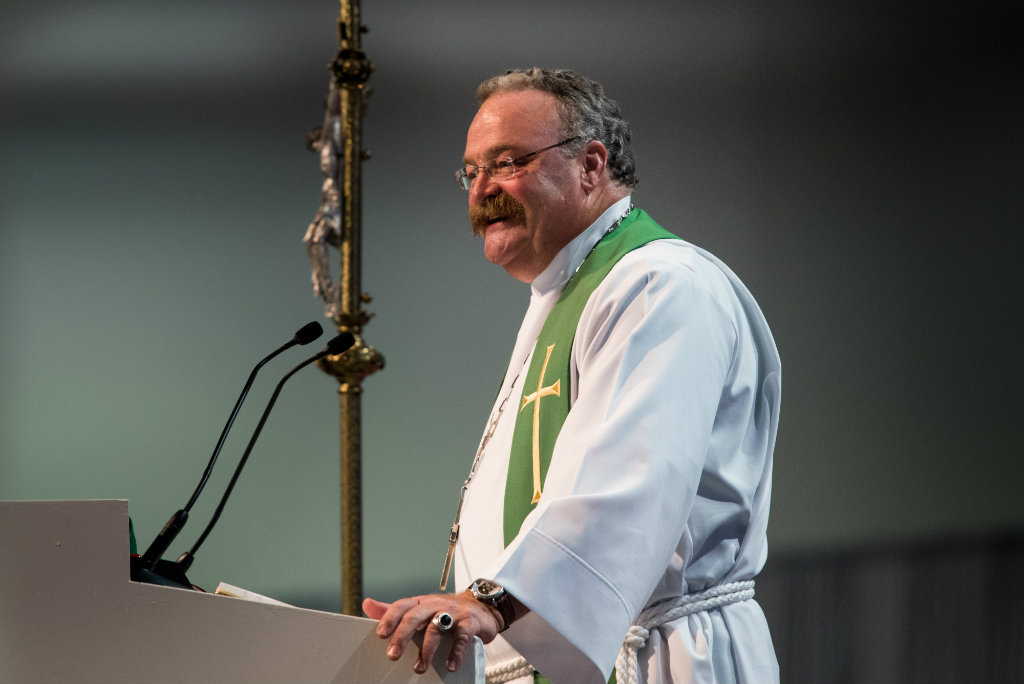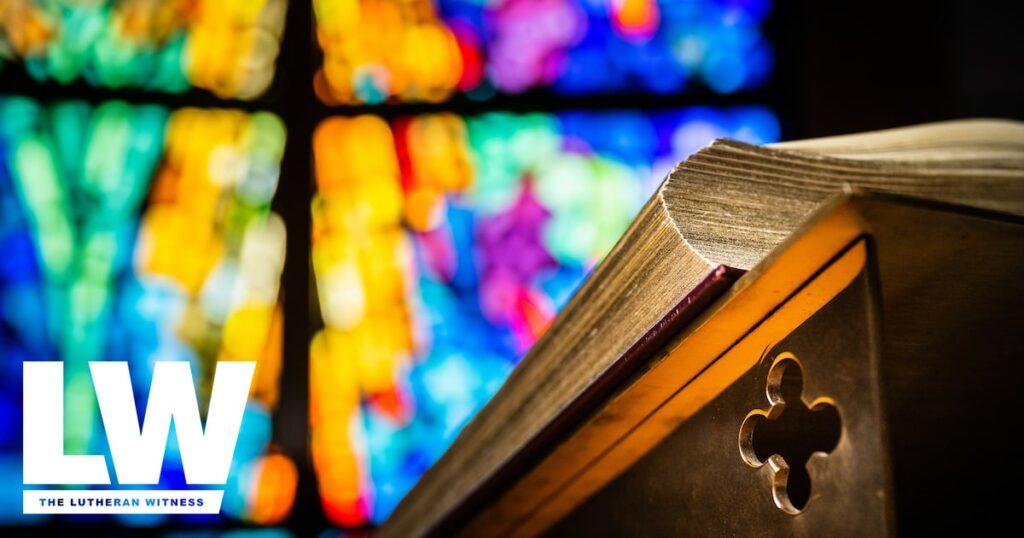
by Matthew C. Harrison
The Church is a paradox. She is the Bride of Christ, “spotless,” “holy,” “washed,” (Eph. 5:25–27), the “pillar and foundation of truth” (1 Tim. 3:15), the body of Christ (1 Cor. 12:1ff.). And yet she only appears in this world hidden under the guise of poor sinners, flawed leaders, tensions, divisions and even false teaching. This is at once both disturbing and comforting. It is disturbing because we find ourselves in such “spotted” congregations, denominations and Christendom. It is comforting because—despite its outward appearance, despite the fact that there have been times in the history of the church when the pure teaching of the Gospel all but disappeared from the public confession of the Church and its practice—nevertheless, the “gates of hell shall not prevail against it” (Matt. 16:18). The Church endures because Christ endures, and He will never let His Gospel go un-believed until the end of time. That’s worth rejoicing over, especially in the times in which we live. And there is also comfort in knowing that because the Church exists well beyond the genuine Lutheran Church, we will also find truth spoken by others. And when we do, we are free to heartily and gladly acknowledge it as such.
This is why neither people nor faith in the heart are the infallible marks of the Church’s presence. Wherever the Gospel and Sacraments are—enough to bring people to true faith in the true Jesus—there is the Church (Augsburg Confession VII). Genuine Lutheranism retains this tension, the paradox of the New Testament.
The secret of living a good news life in a bad news world is knowing that despite our manifold weaknesses and sins, precisely of Christians and the Church, Christ remains wherever, so far as and so long as, Christ and His Word are heard and to the extent that true Baptism and the Lord’s Supper remain. That is the expansive joy of generous, faithful Lutheranism. Thus genuine Lutheranism is simply genuine Christianity. And Christianity, with all its manifold weaknesses and sins, is far broader than genuine Lutheranism. There is a time to “separate” (Rom. 16:17), and we bear the burden, knowing that the Church is found geographically and temporally far beyond the limits of churchly fellowship. But it is shocking to me how tolerant and longsuffering Paul was with his mission congregations. It’s a model for us. He spoke divine truth—“Love does not rejoice at wrongdoing, but rejoices with the truth” (1 Cor. 13:6)—in the most patient and loving manner, and he did so with joy even in the midst of his sorrow. And his speaking of the truth in love was blessed. . . .
That’s the joy of a generous, faithful Lutheranism—generous in recognizing the Church wherever the Gospel is and faithful in recognizing its sacred duty to be faithful to the truth of God’s Word. It may be a paradox, but it’s a joyous paradox nevertheless.
Excerpted from A Little Book on Joy (CPH, 2011), pages 162–68.




Shame on me! Based on the title of your article, “Genuine Lutheranism is Simply Genuine Christianity,” I was thinking through my response before reading what you wrote. I appreciate your perspective on the tension that exists with the Church being in this world, and yet part of another. Thank you for your words of encouragement and the exhortation for us to deal with others in love and humility.
Thank you so much for sharing these remarks! A succinct and uplifting way to encourage all in the Synod and beyond.